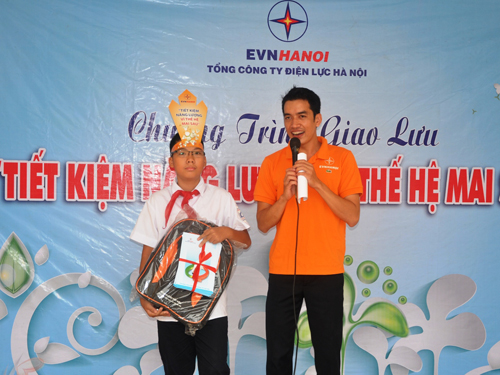Tuesday, 03/03/2026 | 17:48 GMT+7
As one of the pillars of national power energy security, in 2011-2015, Electricity of Vietnam (EVN) not only ensures enough electricity for the economy but also stays in the lead in the implementation of solutions and promotions of economical and efficient use energy.
Numerous achievements
At the Conference on the 5-year implementation of the Law on Economical and Efficient use of Energy organized by the Ministry of Industry and Trade, Mr Tran Viet Nguyen - Deputy Head of Business Department of EVN - said during the period from 2011 to 2014, electricity saving is 1.9 billion kWh per year on the average, equivalent to over VND2,757 billion/year. Besides, the reduction of power losses also achieves significant figures; from 9.23% in 2011 down to 8.87% (in 2013), 8.49% (in 2014) and it strives to reach 8% (in 2015).
To attain these results, EVN has been actively building the programs, an annual plan with specific targets and outreaching deployment to its local electricity units. Typically these are the programs: communication, promoting safe use of electricity, saving and efficiency; replacement of incandescent bulbs with compact fluorescent light; Earth Hour; promotion for the use of solar water heater. Every year, the local electricity units work with mass organizations such as women's union, youth union, veterans' union, Energy conservation Center to jointly find solutions for suitable guidance appropriate to each communicative object.

The power-saving communication programs of EVN are not only deployed extensively but also focus on themes in depth such as saving lighting, office buildings, and classrooms model. For the business sector, EVN actively coordinates to prepare the electricity-saving program through support, advice on the working place layout, making investment plans for change of power saving equipment and machinery. EVN also organized trade fairs for businesses and producers to show and sell their products, electrical equipment with energy labels.
Need to get the Community in the swing
As reported by the General Department of Energy (MOIT), for the past 5 years, energy-saving efficiency of the country reaches about 6% of total energy use, equivalent to approximately 11.88 million TOEs. Energy saving potential of Vietnam is still very big, maybe up to 30% of total energy consumption.
However, according to Mr. Nguyen, electricity savings are still facing some challenges, while the awareness of some section of people and businesses of energy policy are limited; the coefficient of elasticity (the ratio of the growth rate of electricity demand / growth of GDP) of Vietnam remains high, reflecting the low efficiency of power use in the economy; the sub load of some sectors increase sharply, exceeding the planned capacity is also a difficulty; capital and credit for investment into energy saving measures are limited; meanwhile the energy consumption norms for product unit has not been worked out or issued for manufacturing industries; inspection and monitoring have not been regularly performed, the sanctions are not deterrent enough.
To realize the efficient use of energy, EVN recommends to the Government, ministries and agencies continue to direct, to promote regular communication to raise awareness in the community; to develop and implement financial mechanisms for encouraging more investments into energy efficiency projects, such as preferential lending mechanism; mechanism for energy services contract (ESCO); support the domestic production facilities. The use of energy labeling should also be promoted.
Facing the risk of primary energy shortage, the energy saving program is the most optimal solution to meet the criteria of sustainable development policies. However, to implement it effectively, the power industry needs getting the community in the swing.
Trong Tan







